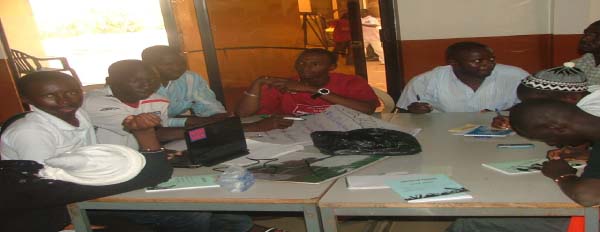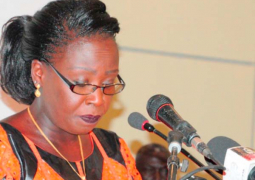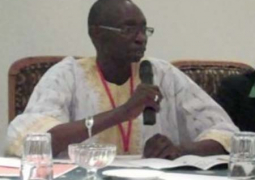
The Gambia Revenue Authority GRA on Friday made a presentation on the soon to be introduced tax system, Value Added Tax (VAT), at a forum supported by the EU and attended by members of the business community.
VAT which is slated to be in effect as of 1st January 2013 is a modern indirect tax levied on the consumption of taxable supplies of goods and services at various stages of their production, distribution and import.
Official further revealed that VAT is a more broad-based consumption tax than the current sales tax; it has no cascading effect and is good for the promotion of both domestic and international competition.
The workshop was organised by the office of the EU Delegation in The Gambia together with the GRA at the Ocean Bay Hotel in Cape Point, and looked at how VAT will work, its collection and registration, among others
Agnes Guilaund, EU Charge d’ Affaires in Banjul, said the idea of the workshop was to provide the business community in The Gambia with timely information on the introduction of VAT in The Gambia as of 1st January 2013.
She revealed that the EU is supporting the government of The Gambia in this important reform through its ‘Governance Programme in The Gambia’.
Ms Guilaund added that the said programme will support other public finance management reforms, including public procurement and the governance framework for public enterprises.
“The European Commission has highlighted in its 2010 Communication ‘Tax and Development – Cooperation with developing countries on promoting good governance in tax matters’. This shows the importance that the European Union grants to assisting developing countries in building efficient, fair and sustainable tax systems and administrations,” said the EU official.
“This is essential in view of ensuring the sustainable provision of public services, as well as allowing countries to assume ownership for their own policy choices. Moreover, the nexus between tax reform and improvement of the business environment is critical in making it easier for businesses to invest in trade and create jobs,” she added.
Meshack Tjirongo, IMF representative, said the VAT will be a key driver to the tax reform program in The Gambia.
He revealed that an IMF technical assistance diagnostic mission in May 2010 found that revenue administration in The Gambia has undergone major reform, and the formation of the Gambia Revenue Authority (GRA) in 2006 provided a solid foundation for introducing best practices.
The IMF representative said that the recent tax administration improvements provide a solid foundation for a successful VAT launch by January 2013
The Commissioner for Domestic Taxes at GRA, Essa Jallow, who made a detailed presentation on the VAT, said the implementation of VAT in The Gambia is part of the tax reforms embarked upon by ECOWAS member’s states and the country’s PFM reforms.
Speaking on the VAT’s application to embassies and NGOs, Mr Jallow revealed that VAT is not directly link to the diplomatic missions, consulates, and NGOs among others.
He told his audience that imports qualifying for customs exemptions will not be subjected to it.
Commissioner Jallow further revealed that VAT will be paid on all domestic purchases by missions and their staff, noting that the Gambian staff working are not covered by the diplomatic mission.
He noted VAT is not a tax on basic needs such as education, basic foods, unprocessed agricultural and aquaculture productions supplied by producers, among others, so as to ensure protection. “From this forum, we hope to see a positive collaboration,” he concluded.



